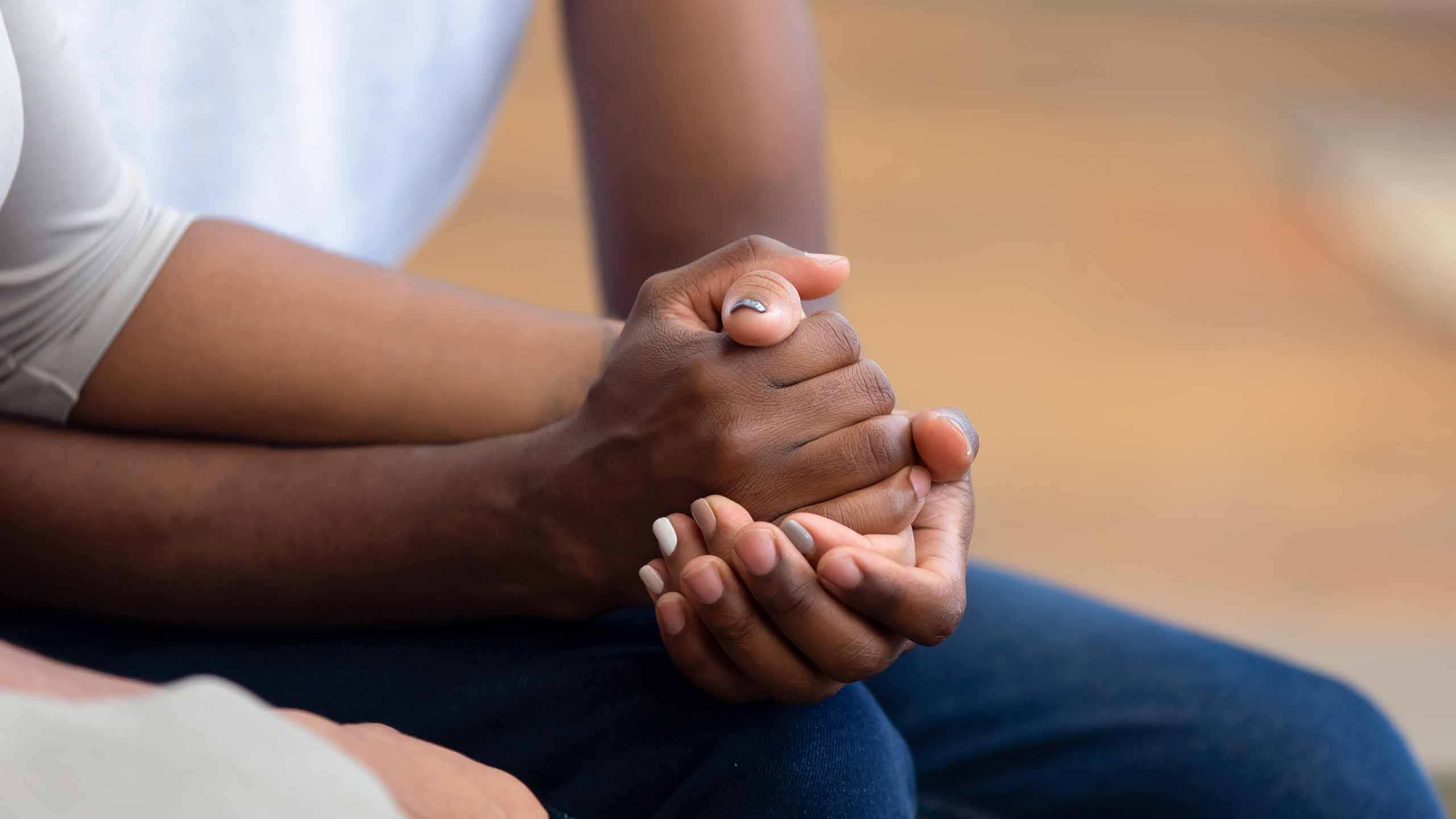Grief Counselling Calgary
Calgary Grief Counselling - Understanding Your Grief
Calgary grief counselling is a method of psychological support provided to individuals who have gone through loss. Grief is a highly individualized experience that can take many forms and adults, adolescents, and children may process grief differently, but negative feelings can emerge regardless of age. A loss can be triggered by the death of friends, family members or loved pets; by difficult life transitions (moving, starting a new school, losing a job); or by the illness or disability of oneself or a loved one.
Grief can be defined as an emotional and physical response to loss. However, while it’s important to understand that it’s a perfectly normal reaction, you should never ignore the signs and symptoms of grief if they get too severe or out of hand. The process of grieving will take place differently for everyone. Using Calgary grief counselling services could help you cope with the loss and lessen the duration of your grief process if you make an effort to work through the stages of loss as a whole.
When Should You Have Grief Counselling?
We go through life, experiencing different situations and circumstances that can bring about feelings of joy, sadness, anger, or happiness. We experience the whole range of emotions and generally the ones that make us happy we enjoy, and the ones that make us sad we grieve over. However if you have suffered a loss and have not been able to recognize your grief correctly, then this can delay your healing process and cause imbalances in your body.
Grief often becomes chronic when it is not acknowledged and dealt with. Physically, the stress and anxiety that you feel can manifest itself in many different ways, some of the common physical manifestations of grief are:
- Stress headaches;
- Difficulty sleeping;
- Body aches and pain; and
- Illness and fatigue.
So, when should you seek grief counselling? The answer is when your grief will not quiet within you. When anxiety, panic and stress take over your life, when you are unable to process your thoughts, when you’re unable to function properly in your daily activities and routine, when your pain cannot be expressed in words or sobs that cannot come out of your chest, when your grief is appearing in physical manifestations – it’s time to seek grief counselling in Calgary.

What Is Unresolved Grief?
Unresolved grief (also known as persistent complex bereavement disorder) is a state in which someone experiences deep yearning or sadness and has difficulty accepting the death of a loved one or other life altering loss. Individuals may experience:
- Anxiety;
- Depression;
- Trouble sleeping; and
- Cognitive issues.
They can have physical symptoms as well, and do not have a sense of closure about the death or loss beyond what is considered usual for a person’s cultural background and social circle. There are few defining characteristics of unresolved grief and no strict guidelines, leaving it open to more debate than actual understanding.
It is generally considered a phase of grief that is stuck or continual. This can hinder someone from establishing routines in their lives that include self-care and/or daily activities. The longer the symptoms of unresolved grief persist, the more difficult it can be for the person to recover their previous sense of self, or to recover at all.
How Do Therapists Help With Grief?
A Calgary grief therapist might ask you questions to help you pinpoint the negative thought patterns that come up around grief. Therapists offer support and guidance in identifying whether or not your beliefs about your loss might be hindering you. They’ll also help you and your loved ones find healthy ways of dealing with grief. A therapist can provide a space for you to explore or discuss things you may be too afraid or uncomfortable to talk about with friends and family.
People often find themselves consumed by their emotions. This can cause them to neglect their physical and mental health and suffer from anxiety, depression, and guilt, among other illnesses. Grief therapy can help people understand the grieving process, reminds them there’s more than one way to grieve, helps them honour the deceased without trauma, allows them to move past their loss into self-care, and reduces the symptoms of depression and anxiety they’re experiencing.

What Happens When You Don’t Deal With Your Grief?
Grief can come in many forms, and it doesn’t always need to be material. Whether you lost a loved one, didn’t achieve your goal, or suffered an injury – grief can apply. It is when you feel that your life will never be the same again. But what happens when you don’t deal with your grief? What happens when you start to ignore the signs that appear?
If you have gone through loss and are experiencing feelings of intense and long-lasting longing and sadness as well as physical symptoms, such as fatigue and insomnia, and these feelings have not gone away even years after the traumatic event; or, when these feelings become so difficult to bear that they interfere with work, home life and social activities, at this point the grief you are experiencing is no longer a healthy response to a loss.
Tragedy, emotional crises, and loss are all invitations to cultivate compassion for the self. In other words, when you’re experiencing a challenging time in your life and your emotions feel overwhelming, it’s understandable to want to withdraw from the world. However, instead of turning away, take this opportunity to open up yourself and your heart. Grief counselling services can be useful in this respect—they allow you to confront whatever is making you feel sad or upset at the moment, but in an environment where you can feel safe and supported while doing so.
Trying to deal with your personal loss alone can only make matters worse. Make sure that you know where you can get support from so that you don’t feel like you’re walking a path of hopelessness. Calgary grief counselling services are available, and finding the right one to suit your needs may very well help lessen the duration of your grief process when working through the stages of loss on your own won’t suffice.
Grief Counselling Questions
Cognitive behavioural therapy (CBT) for grief is a natural choice for those who have suffered loss and need to reconcile their feelings. CBT teaches you how to think about your loss from a new perspective, leading to a change in behaviour which can help you adjust to the situation at hand. It’s important to note that CBT isn’t a magic pill for grief , but it can be a highly effective treatment for those who are committed to making an effort to deal with their grief.
When experiencing loss, a mixture of complex and contradictory feelings takes over. There are many words that are used to describe the emotions that a person feels when they go through a loss, including bereavement and grief. In general, bereavement is more accurate as a word because it refers to a specific time point — the death of a loved one, for example — while grief is instead used to describe the entire emotional process of coping with the loss of someone close to you. However, there are many people who use those two words interchangeably.
Words can only do so much. Grief counselling is intuitive and creative, using a range of different approaches that help you to grieve your loss in the way that makes most sense to you. In the beginning stages, a grief counsellor will likely ask you about your loved one and your relationship with them. Counselling can also involve talking about how your life may change in future, what you might feel on a daily basis and whether these feelings are normal. Also, the counsellor may encourage you to discuss your daily activities and routines, as this could help you work out how much support you need from others at this time.
Book Your Appointment Online
We are currently accepting new clients however being a good fit is everything in a therapeutic alliance. When you’re ready, please contact us for a free 30-minute phone consultation to see if we match your needs and goals.

Our Alberta Locations
WestMount Corporate Campus
4838 Richard Rd SW Suite 300
Calgary, AB T3E 6L1
Phone: (587) 856-8369
Crowfoot West Business Centre
600 Crowfoot Crescent NW Suite 340
Calgary, AB T3G 0B4
Phone: (403) 797-0660
North Campus
160 Quarry Park Blvd SE Suite 300
Calgary, AB T2C 3G3
Phone: (587) 782-4277
Our Edmonton Locations
ELM Business Park
9426 51 Ave NW Suite 201
Edmonton, AB T6E 5A6
Phone: (587) 741-2364
Our British Columbia Locations
1631 Dickson Ave Suite 1100
Kelowna, BC V1Y 0B5
Phone: (778) 654-5396
Our Hours
Monday – Friday: 8am to 8pm
Sunday: 8am to 8pm
Saturday: 8am to 8pm
Our Hours
Monday – Friday: 8am to 8pm
Saturday: 8am to 8pm
Sunday: 8am to 8pm
Copyright 2023 © All rights Reserved. Virtuous Circle Counselling
We at Virtuous Circle Counselling acknowledge Moh’kinstsis, the lands where the Bow and Elbow rivers meet, in what we currently call Calgary. We acknowledge that we are visitors on Moh’kinsstis and acknowledge the Blackfoot are those who named this area as Moh’kinsstis. In the spirit of Truth and Reconciliation, we recognize the ancestral territories, cultures, and oral practices of the Blackfoot people, the Îyarhe Nakoda Nations, the Dene people of the Tsuut’ina Nation, and the Métis Nation of Alberta, Region 3.

